Clare Miller is a sophomore student from Philadelphia studying at the University of Pittsburgh, pursuing a double major in Linguistics and Hispanic Language and Literatures with a concentration in Latin American Studies, and a Certificate in African Studies. She loves to read and write, listen to podcasts, play volleyball, run, cook, and play cards with her friends. Clare’s dream job is to work as a Catholic missionary in another country, or maybe in a neighborhood or school in her own city! Above all, she is a life-long learner and adventurer.
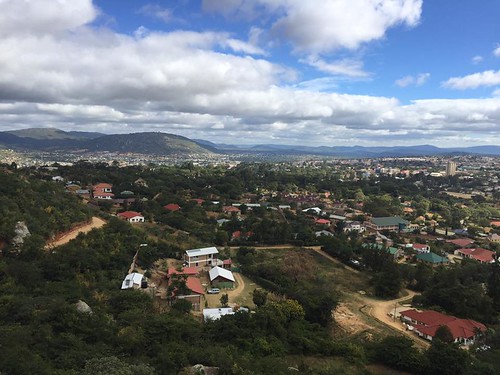
What motivated your decision to go abroad? How/why did you choose where to go?
I love to travel, and I love adventure. I have wanted to study abroad since I was in high school because I enjoyed learning about new people, places, history, culture, and language. I had never intended to study abroad in Africa—although I was interested in doing mission work there—until I started taking Swahili at the University of Pittsburgh to fulfill a less-commonly-taught language requirement for my major in Linguistics. This piqued my interest in East Africa, and I began to purse an African Studies Certificate. When I discovered Pitt’s 5-week Public Health Program in Tanzania, it met my desire for a challenging, adventurous experience and my new interest in this region of our world.
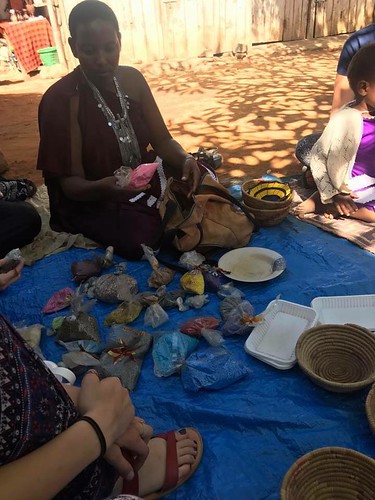
What was your experience like? What is your favorite memory? What were some challenges you observed?
I knew that my experience was not going to be a typical study abroad. Our program was based in Iringa, a small mountain city in the center of a developing country, so the luxuries of the Western World were not at our fingertips. However, I thoroughly enjoyed the freedom of living simply, and it gave me perspective to appreciate all that I had in the U.S. I believe we as humans learn more from our challenges and trials than from the comfort of our normal lives, so despite the food poisoning that left me sick for a week, and the homesickness I felt most days, separated from my family, friends, and country, I know that persevering through the emotional and physical difficulties revealed to me my own strength of character.
I am a do-er, so I also found it hard to approach all that we were encountering—disease, poverty, the effects of the AIDS epidemic, orphaned children, political unrest—from an academic perspective. My professors were experts in their fields, so I gained a wealth of knowledge about health systems in East Africa, but I felt helpless—like a voyeuristic outsider—as we toured NGOs and clinics then returned to our dorms to write interesting but lifeless papers about the experience. However, discovering my own desires to be hands-on in encountering those suffering taught me something about myself, and gave me a greater appreciation for the complexity of implementing aid, public policy, and the gravity of socio-cultural sensitivity needed for any humanitarian intervention.
My three favorite memories still bring a smile to my face.
One was learning songs in Swahili and singing them on the bus as we took day trips. What an incredible way to learn language, and what a way to enter in to the culture of the place we are living.
Second was the beautiful two-day safari we took into Ruaha National Park. We stuck our heads out of the roof of the safari car and passed a dozen elephants throughout the two days, spotted lions by a watering hole, were laughed at by monkeys, laughed at the awkwardness of giraffes, raced with zebras, and were lucky enough to cross paths with a black leopard. I will never forget sitting on the roof of the car as the sun set over the never-ending savanna.
Finally, my favorite trip was to the small village of Kilolo, where we stayed and worked with an NGO that places AIDS orphans with permanent families, and equips them with supplies for school and later finances their attendance at a trade school in the village. This organization was run completely by Tanzanians, and they generously hosted us in their guest cabin. We worked in their community garden, played soccer with some local boys, met incredible women who financially supported their family through artisan basket weaving, and visited the homes of the families in the program. I had the delight of blowing up balloons and giving them to eager little ones running the village streets.
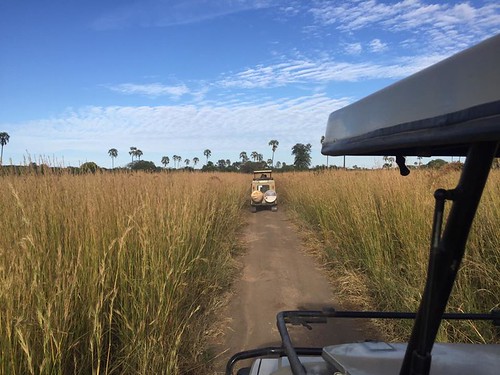
What skills did you develop from your experience? Do you feel changed from your experience abroad?
Many of the skills I developed were about adapting and relinquishing control. Plans changed often, and culturally, Tanzanians have a different sense of time than we do in the U.S, which required me to relax a little. I developed cultural sensitivity, independence, and the ability to step outside my comfort zone (every single day!) The biggest change I feel from my experience abroad is a spiritual one, because when you are away from everything that is familiar, your beliefs and resolve are tested. Going on this program was the hardest thing I have ever done, but you cannot grow without growing pains. I am proud of myself for my “yes” to learning, to being uncomfortable, to trying to understand more about the world.
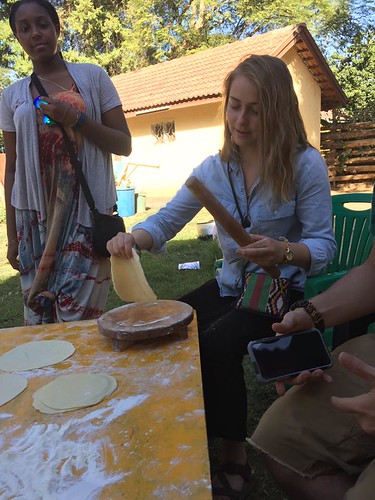
What advice would you share with other students who are thinking of going abroad?
I advise anyone that is going abroad to not have expectations. Nothing will be the way you imagine, so let yourself be surprised! Some things will disappoint and frustrate you, but many will excite you. Also, live simply, and spend your money on experiences, not things.
How has international education impacted or influenced your cultural identity?
Studying abroad has made me more aware of the vastness of the world and the experiences of the people inside it. Going to Tanzania specifically, we talked a lot about the influence of the West and all the baggage and difficulty it brings, which I find to be pointedly relevant for my generation in the U.S today. Studying abroad pushed me to open my eyes to the many cultures that are not my own, and to learn how to appreciate them without judgement.
Is there anything else you'd like to share with us?
You will never regret challenging yourself. Adventure, explore, travel, and be humble so you can constantly learn!
#StudyAbroadBecause...you can never be done learning new things!
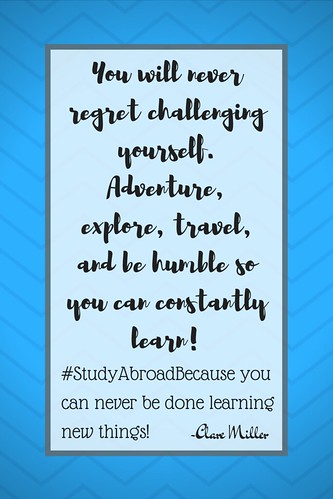
Stasia Lopez is the Global Education Editor for Wandering Educators and is also a Career Consultant at the University of Pittsburgh. She graduated with her Master’s degree in Educational Leadership in Higher Education and Student Affairs from Western Michigan University and earned her Bachelor of Science in Business Administration degree in Hospitality and Tourism Management from Robert Morris University. Stasia is passionate about international education, travel, and loves working on a college campus. She’s lived in four different U.S. states (Florida, Michigan, South Carolina, and Pennsylvania) and also studied and lived abroad in Rome, Italy. Stasia lives in the Pittsburgh area with her husband, Fernando, precious daughter, Maya, and playful kitty-cat Zorro.
You can read more of her #studyabroadbecause interviews, as well as articles on various forms of international education at home and abroad, here.
All photos courtesy and copyright Clare Miller
